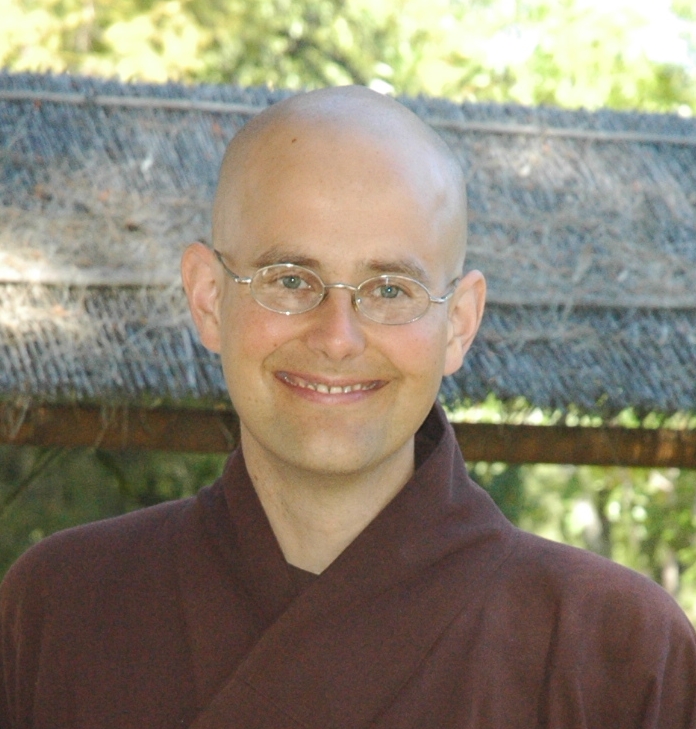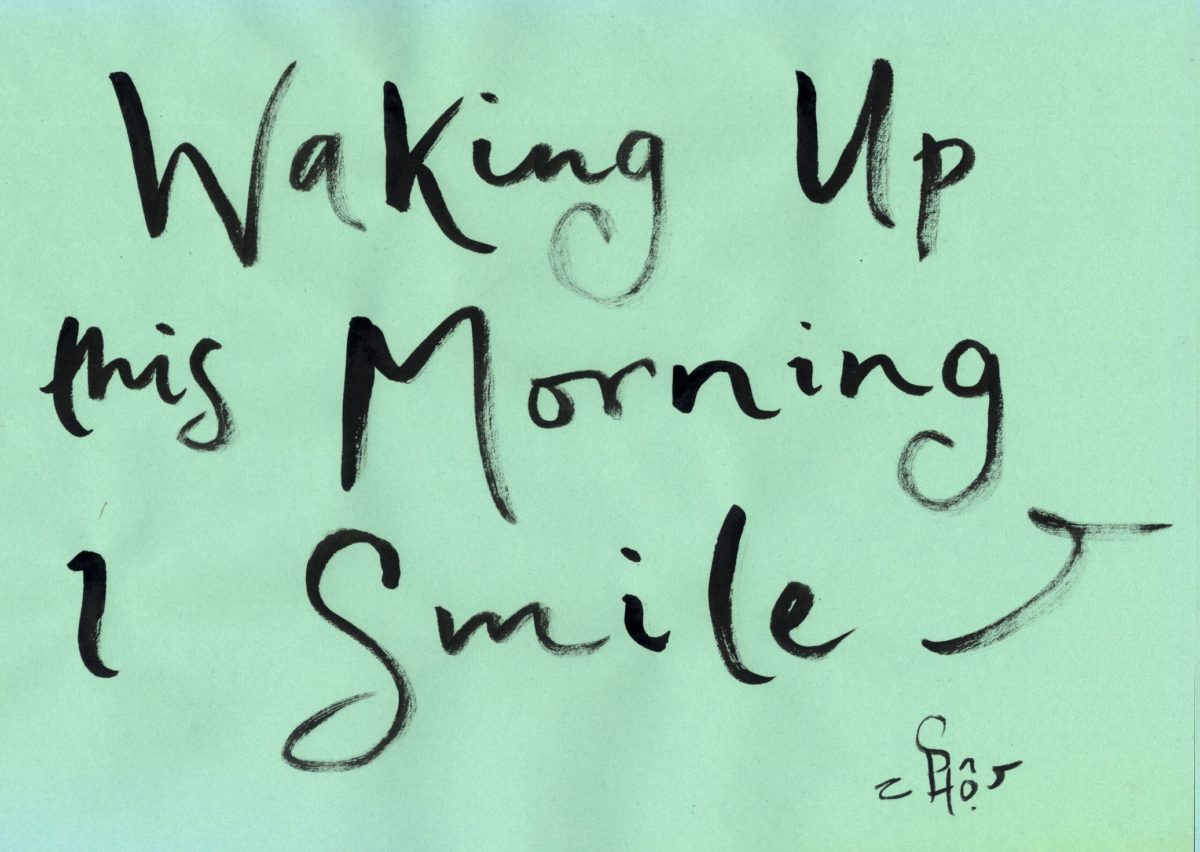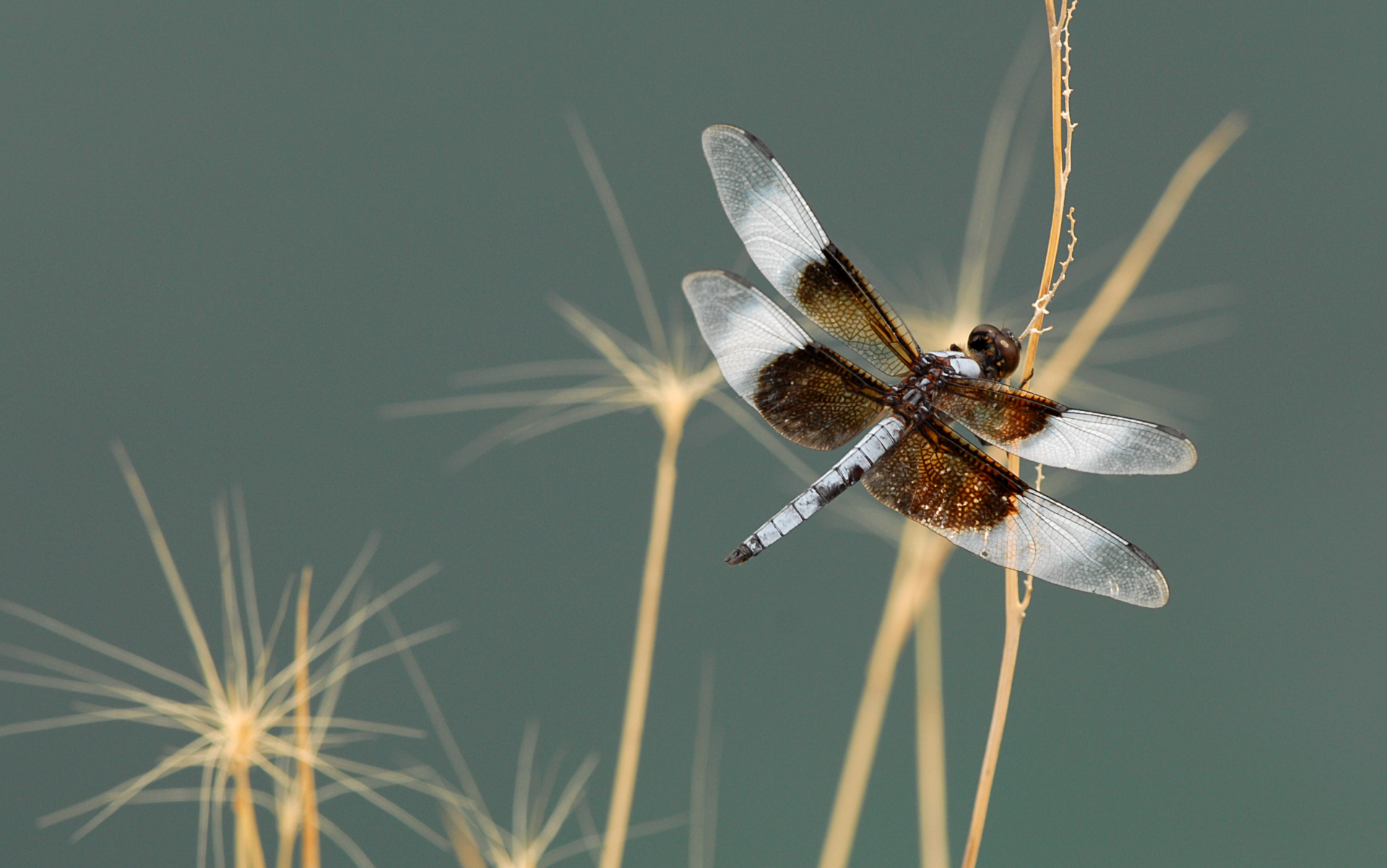By Brother Phap Ho

One day quite some time ago, I had a realization. It was like a sweet voice from deep inside, my heart’s song, my deep aspiration. The message was simple: I want to live a life and have a livelihood that make me happy to get up in the morning, every morning. This was long before I was introduced to the gatha,
By Brother Phap Ho

One day quite some time ago, I had a realization. It was like a sweet voice from deep inside, my heart’s song, my deep aspiration. The message was simple: I want to live a life and have a livelihood that make me happy to get up in the morning, every morning. This was long before I was introduced to the gatha, “Waking up this morning, I smile. Twenty-four brand new hours are before me. I vow to live fully in each moment, and look at beings with eyes of compassion.”
The first time I had the idea of becoming a monk, I was practicing at the Tushita Meditation Center in Dharamsala, India, in the fall of 2001. I was staying at the Tibetan retreat center with a friend from Germany. We were helping to paint some of the retreat huts in the mountains outside McLeod Ganj. Our bodhicitta was strong and our inspiration to practice meditation was blooming. But still the idea of becoming a monk was just an idea, almost a joke.
Living Examples
Growing up in Sweden, I had no role models for living a spiritual life or practicing chastity, so to be around monastics was still very new to me. As I continued to practice during my travels in India, I found myself thinking, “If there is no life after this, I can just continue the way I live my life already, as I am happy enough. But on the other hand, if there is some kind of continuation, I might as well become a monastic in this life.” I studied and reflected about death and birth during my stay at the Root Institute in Bodhgaya. There was no answer, but I was grateful to have a path of practice to help me experience and look deeply into life.
The previous spring in Stockholm, I had struggled with this same question. I was in a committed long-term relationship, and my partner and I practically lived together. I felt that I had enough happiness living that life and that we could be happy together. There were challenges, but both of us were ready to help the other grow. One day, though, it was clear to me: Happy enough is not happy enough! A sense of urgency, a feeling of the vast potential of life came up, and I knew I had to continue this path on my own, not knowing what to do or where to go.
I remember that at the age of ten or so, I wanted to become an archaeologist. History was my favorite subject in school, thanks to an inspiring teacher. Then one day at a relative’s birthday party, I met a second cousin who was studying archaeology at the university. After talking with her for a while, I decided that archaeology seemed pretty boring and I gave up on the idea of becoming an archaeologist. Looking into my life in the past and present, I see the extent to which I draw from the living examples of people around me.
I eventually decided to study law. I remember the frustration I felt at times in law school and later when I was practicing law. Many days I did not feel happy to get up in the morning. There were elements that I really appreciated and treasured, but as a whole I did not feel at home in my studies and way of life; I was not arriving in the study and practice of law. I tried to make it work, to find a niche of law that was close enough to my passion in life.
At one point, I did find a position at a nonprofit organization, helping people with different legal issues, people that did not otherwise have access to the rights and services they really needed. This position, the people working there, and the spirit of the organization were all very appealing, and you know what? I got the job. A week or so before I was due to start, though, the manager called me with some bad news. Due to budget cuts in the organization, the position that I was to step into had been eliminated. At the time, I really felt that this was terrible and that I had lost something, but looking back I recognize that had I been able to actually step into that position, it would have taken me much longer to get to the profession I really want to devote this life to.
I remember very clearly the day I first saw Thay practicing walking meditation. The voice from deep inside said, “I want to be able to walk like that!” A living example had once again spoken to me. I stayed in the Upper Hamlet of Plum Village for six months before my reasoning mind was ready to accept the idea of becoming a monk. Eventually it was time to step into freedom.

A Vocation That Brings Joy
In the Discourse on Happiness, the Buddha states that to have a vocation that brings you joy is the greatest happiness. After I had been living at Deer Park for about nine months, my brothers suggested that I become the work co-coordinator for the 2006-2007 Winter Retreat. I found much joy in this responsibility and enjoyed making announcements, leading gatherings, etc. But many mornings I was not very happy to wake up. I was receiving many ideas for projects from different brothers, and I did not see a way to realize many of them. I felt too responsible to let go of these projects. Today, four years later, some of them still have not manifested. When conditions are sufficient, things manifest.
You know what? In living and practicing, I feel that I am an archaeologist, discovering layer upon layer of habit energies, ancestors, joy, and peace. The path of meditation is a path of investigation and discovery. Living in the Sangha, we also walk the path of service, offering the opportunity for many people to come and practice, to discover their rights as human beings and their true nature of happiness and peace. Have any dreams of the past really been lost?
Before ordaining and as a novice, we were many times asked why we wanted to be monastics. This is a very good question. And you can keep asking it, because the answer keeps changing. I remember one of the brothers in my ordination family sharing that it simply was natural for him to be a monk. Today I could say the same. It is not destiny, but the conditions are sufficient for me to be a monk. People often ask, “Don’t you miss what you had to give up in becoming a monk?” I have not given anything up, but I have happily let go of many things along the way. Without letting go, how can we be open to receive something new? Our potential for joy and peace is so much greater than I could have envisioned during my time in India when I reflected on birth and death. If I had only one more year to live, I would still do what I am doing right now.
Writing this, I just came back from a five-day camping and hiking trip with nineteen of my brothers and sisters here at Deer Park. The first morning we had mixed feelings about waking up, because the night had been really cold and we had not slept much. Coming together in front of the fire, drinking a cup of tea, feeling the rays of the rising sun on our faces was so precious that morning, thanks to the cold and thick layer of frost of the dark night. So, on some days, “Waking up this morning, I smile” is a practice, and on some days it is a realization.
How can we express the sweetness of waking up?
The past, present, and future are the three wheels of my first bicycle,
my breath a reflection of all my ancestors.
Nothing has been lost, nothing is found, and yet all is present.
Brother Phap Ho was born in Stockholm, Sweden, in 1972. He went to Plum Village for the first time in May 2002 and never really left. He ordained as a novice monk on February 8, 2003. Since February 2006, he has been residing at Deer Park Monastery.

